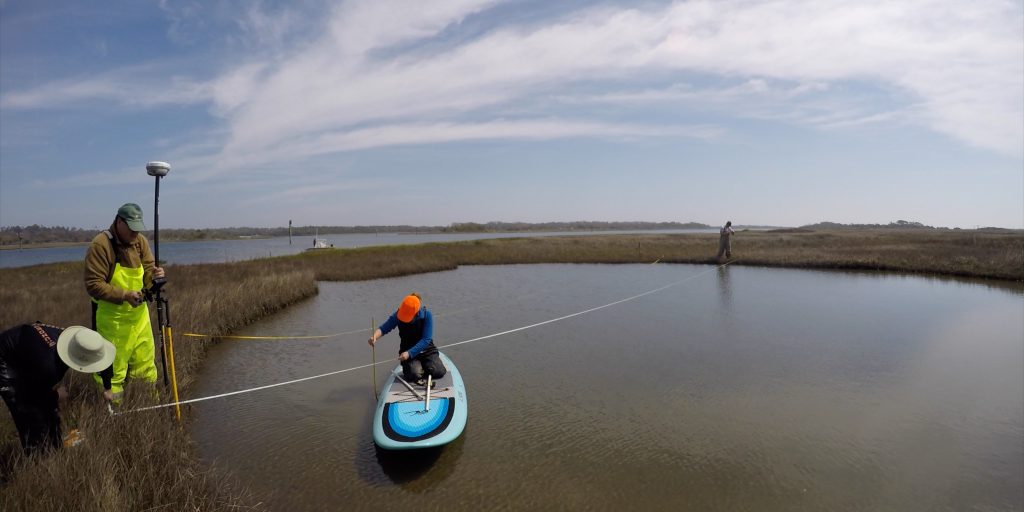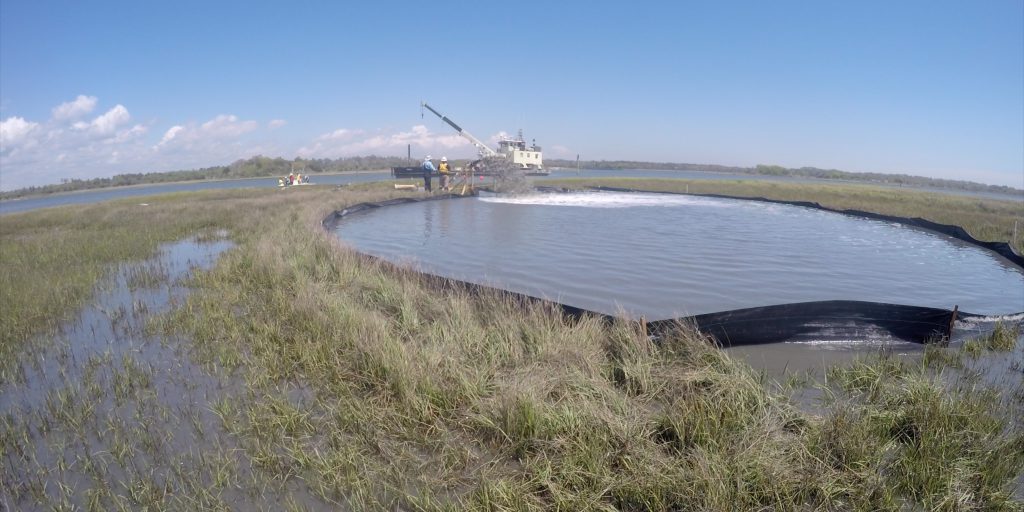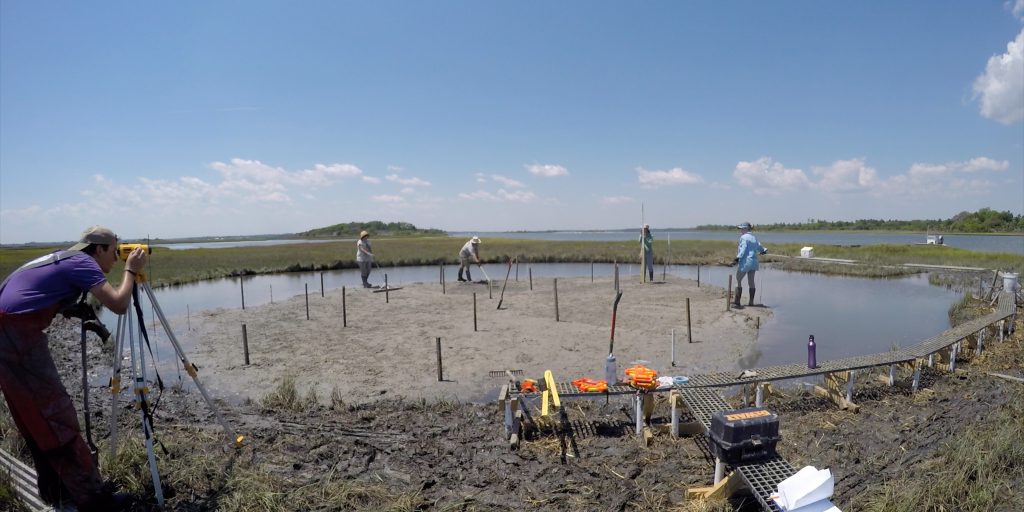Salt marshes are an important part of coastal ecosystems. They provide habitat for wildlife, clean the water by filtering toxins and nutrients out, and help protect coastal infrastructure by absorbing wave energy during storms.
Sea level rise, shoreline erosion, and pond formation threaten salt marsh habitat at Marine Corps Base Camp Lejeune in North Carolina. Scientists from NOAA’s National Centers for Coastal Ocean Science (NCCOS) and staff from the U.S. Army Corps of Engineers (USACE) are providing the Base with data and strategies to address the problem.

Drawing on their assessment of the system and identification of potential restoration areas, this spring the team applied dredged sediments to a marsh pond at the Base to bring the ground elevation to that of the surrounding marsh. The group then planted marsh grass (Spartina alterniflora) in the former pond.

As part of this pilot project, the researchers are also collecting data on sediment, water quality, planting success, and fish use of the marsh to support development of larger-scale projects. The assessment and restoration methods developed for this project could help inform other military installations and coastal communities in need of salt marsh conservation and protection.

For more information, contact Carolyn.Currin@noaa.gov or Jenny.Davis@noaa.gov.
